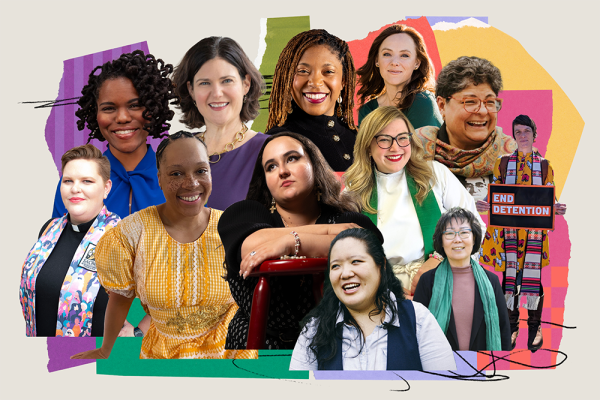1: Shoeless Joe
Field of Dreams is based on a novel, Shoeless Joe, by the Canadian writer W.P. Kinsella. That’s a much less clichéd title than Field of Dreams, and I often think it’s easier for folk to be cynical about the movie because the title is so literal. Having said that, it’s about far more than just the story of “Shoeless” Joe Jackson, the baseball player exiled from the major leagues after being accused of helping to intentionally lose the 1919 World Series. Field of Dreams is about fatherhood, and masculinity, and marriage, and money, and community, and the road not taken, and the choice to pursue what — in Howard Thurman’s words — “makes you come alive, because what the world needs is people who have come alive.”
But in the dimension where it is about “Shoeless” Joe, it’s about the redemption of a life stolen by authoritarian power, in his case the baseball commissioner who banned him from playing, even though he may have done nothing to warrant any kind of sanction. Perhaps a better title would have been Whatever Is Truly Real Can Never Be Lost.
2: 'If you build it, He will come.'
The most famous line in the movie is, of course, spoken by The Voice to Kevin Costner’s 36-year-old farmer Ray Kinsella on a summer evening walking amidst giant corn stalks. He sees a vision of a baseball diamond where the next year’s crop should be, and knows — just knows — that he’s supposed to plow under his crop and make space for a miracle. This reminds me of John O’Donohue’s gorgeous formulation: “When you enter into freedom, possibility comes to meet you.” Sometimes we’re invited to step out into the world we want to see before it even exists. Our footsteps will help create it.
3: And then there’s 'Go the distance,' which…
…is the kind of thing you need to hear when the odds seem stacked against you. The meaningful life is a marathon, not a sprint. A friend told me that he recently heard a great poet-farmer-prophet respond to the question, Where do you see signs of hope in the world? with something like, I don’t spend much time thinking about that. What I prefer to do is take no thought for tomorrow, and ask myself, “What can I get good at that will help the world?” And then I try to get good at doing that.
4: 'I spent all my misery years ago…I can’t tell you the secret of life, and I don’t have any answers for you.'
One of the loveliest, rarest things about Field of Dreams is how it treats its elders, starting with Terence Mann, the reclusive writer inspired by J.D. Salinger, and fully embodied by the glorious performance of James Earl Jones. He’s at first a reluctant mentor to Ray, but eventually the magic of the moment compels him. What he doesn’t expect is that risking the gift of himself to someone else results in him discovering more healing than he ever imagined. This, of course, is how love works.
5: 'Make love, not war.'
Lovely, also is how the men in Field of Dreams are integrated, or at least integrating. (They’re greatly helped by the magnificent craft of Phil Alden Robinson, who directs the way I imagine Mark Twain or Maya Angelou would: with love.) Mann is a man who understands that the kind of warrior the world needs is one who knows when to take his armor off. So is Burt Lancaster’s gorgeous “Moonlight” Graham, who missed his dream, getting to be at bat for only the last five minutes of the season. Being passed over for a career in baseball, he instead became a doctor. “It’s a tragedy,” says Ray, when they meet in the moonlight, in one of those small towns where folk know and care for each other, where the librarian is a wisdom figure — one of those towns that may or may not really exist, but seems like it ought to. Doc Graham knows why Ray empathizes, but also knows better, saying,
6: 'Son, if I’d only gotten to be a doctor for five minutes…now that would have been a tragedy.'
And if Amy Madigan’s Annie Kinsella had only gotten to be a champion of free speech and caring for vulnerable people for five minutes; or if Gaby Hoffman’s Karin Kinsella had only gotten to be a provocative child-sage for five minutes; if Anne Seymour’s local newspaper maven had only gotten to be in that role for five minutes, Field of Dreams would be a film about men figuring out things for themselves. Instead, it treats its women characters as more than props, as people who look at men with empathy, knowing that while we have work to do to reduce our own sexism and aggression, we sometimes need a little bit of help to find our better selves. And then, there’s this:
7: 'Ease his pain.'
Which is really the heart of Field of Dreams.
Toward the end of the movie, Ray throws a bit of a tantrum, demanding to know, What’s in it for me? That may be the generational question most easily avoided when Field of Dreams is read merely as a nice magic-realist vision of Americana and father wounds. To be sure, it is for men who haven’t reconciled with their fathers, and who want to find a way to love even across the chasm of difference that sometimes exists there. But it’s also for the entire cohort of baby-boomer men who were in their mid-30s when it was released, and are in their mid-60s now. Those men, and that generation, began in promise, have made some progress, have made some mistakes, and now must ask themselves not, What’s in it for me? but something more like, What are we going to do with the mess we’ve made?
I like to imagine Ray and Annie’s field being the place where interdependent community — or what Thich Nhat Hanh calls interbeing — is woven.
The promise of Field of Dreams, the promise of life itself, is that when we give ourselves to serving the common good at the place where our “deep gladness and the world’s hunger meet,” as Frederick Buechner writes, we don’t just help advance the healing of the people we touch, we also begin to heal our pain. It is a mysterious transaction: In offering medicine to others, we are also healed.
And at that point,
8: 'People will come.'
For the antidote to authoritarianism is to lead with love. Then the walls that never should have been built will fall.
And the antidote to spiritual death is not to fight against it, but to do something beautiful instead.
And the antidote to loneliness is to become your own best friend. Then so many people will flock to you, you won’t know what to do with them.
I've come to believe, through both the pain and joy of life, that we are all called to a dream of interdependent community in which the things we may previously have thought impossible turn out to be what we were meant for all along.
Most of us probably won't hear a Voice, but you have to start somewhere.
Got something to say about what you're reading? We value your feedback!







